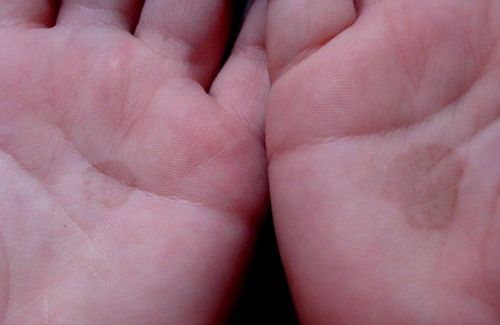This is an automatically translated article.
When it comes to improving our health, we tend to focus on diet, exercise, and sleep habits. But because the home is the place to spend most of the time, if your house is polluted, mold will also affect the health of yourself and loved ones in the family.
1. How does your home affect your health?
Most people spend at least half of their lives inside their homes without realizing that there is a connection between housing and our health. Regular cleaning of your home is a way to protect and take care of your loved ones' health. Those jobs include preventing and minimizing viruses, molds, bacteria, insects, rodents... that are harmful to your health.
It is even more important that you clean and clean them regularly during the current Covid 19 pandemic. Sars-CoV-2 virus can live on every surface in your house for many days such as: Paperboard is 1 day; wood fabric 2 days; plastic steel 3 days; glass, 4-day desk... But everything has a solution if you know how to properly clean and take care of the house. Viruses, bacteria or mold are all cleaned up with disinfectants and basic cleaning procedures.
2. How to create a healthier home
When it comes to improving our health, we tend to focus on diet, exercise, and sleep habits. But since the home is where we spend most of our time, it's equally important to find ways to improve the atmosphere of a living space.
Here are some ways to help you create a cleaner home:
Let the air in: Open the windows and close the blinds to not only let in natural sunlight, but also let fresh air in. fresh air to enter and remove potentially contaminated indoor air. Therefore, the most effective way to improve the air in your home is to ventilate it with clean outdoor air. Use a water purifier: Installing a water filtration system to filter harmful pollutants like ammonia and radium from the faucet will protect your health. Reduce the chance of mold growth: While there's no practical way to get rid of mold completely, you can take steps to minimize it by controlling the humidity in your home. According to the EPA's recommendations, you can reduce the humidity in your home by 30-60% by ventilating the bathrooms in your home, using an exhaust fan when you cook and running the dishwasher, and using an air conditioner. air and dehumidifier. Considerations when choosing cleaning products: Many cleaners contain ingredients that contribute to respiratory problems, allergic reactions, and headaches. When you buy household products, look for "low VOCs" on the label. VOC stands for volatile organic compounds, which are the main culprits when it comes to toxic cleaning products. Dust mites: Dust mites are one of the biggest allergy culprits and can quickly turn a happy and healthy home into a swarm of sneezes. You should cover mattresses, box springs and pillows in special fabrics that are anti-allergic. Indoor plants: Indoor plants help to add natural green color to any living space, in addition, they can also purify the air for your home.

Dọn dẹp thường xuyên ngôi nhà của bạn là cách bảo vệ và chăm sóc sức khỏe
Create a private space: This is especially important if you have children running around. Creating a small space to practice yoga, meditation is a great way to take control of your mental health. Wash dishes properly: The way we wash dishes is an overlooked part of creating a healthy home. You need to make sure you're doing it the right way to avoid leftovers that can turn to bacteria and mold if left unwashed. Don't use room fresheners: While room fresheners add a pleasant smell to a space, experts at the EPA say they only mask other odors that may be present in your indoor environment. Many room fresheners are also manufactured with harmful chemicals that can contaminate the air you are breathing and pose certain health risks. Diffuse essential oils throughout the room: Essential oils can be used for many different purposes. The pleasant steam from the diffuser is ideal to help clear your mind. Identify Pests: Pests like mice, fleas, and cockroaches can really live in any space. Make sure that any trash containing leftovers is placed in trash cans with tight-fitting lids. Wash your sheets regularly: A healthy home also means a healthy bedroom. So you should schedule regular laundry. If someone is sick or has the flu, bed linen should be washed immediately. Install a carbon monoxide detector: Carbon monoxide has been dubbed the “invisible killer” because it is odorless and colorless but can be deadly if leaked. CO detectors should be installed on each floor of the house and near sleeping areas if you have the conditions and care for the health of your family. Turn off the lights when you're not in the room: A healthy home also means an eco-friendly home, and you really don't want to use unnecessary energy in your living space. You should also change your bulbs to LED which will prolong the lamp life and save money as you use it. Disinfect toys if you have young children: Children's toys are dragged everywhere inside and outside the house. Aside from obvious wear and tear, toys can be a reservoir for germs, allergens, and even mold. Change cutting boards: Cutting boards are another breeding ground for bacteria, especially if you cook frequently with meat. A general rule to follow is to replace plastic cutting boards after they have a cut or scratch. Clean cell phones regularly: Things like cell phones, TV remotes, iPads, and even computer keyboards can harbor more germs than people think. To clean your phone, first wipe it with a microfiber cloth, then gently wipe it with a disinfectant. Clean your home regularly: Disinfect doorknobs, clean up clutter, and wash towels regularly. Store food in good quality containers: Good quality containers will help keep your food fresh for longer and taste better by preventing bacteria and odors from escaping. Leave your shoes out the door: Research published in the journal Microbiome has found that shoes can be carriers of microorganisms like bacteria and viruses. If you're wearing shoes indoors, you can spread those germs throughout your living space. Clean your doormats regularly to limit the risk of viruses and bacteria. Remember to wash your hands thoroughly: This should be the
1 rule to remember before doing anything. Frequent hand washing is one of the best ways to get rid of germs, avoid getting sick, and prevent the spread of germs to others. Regularly change dish sponges, dirty dish towels and other items: Many common household items are becoming a breeding ground for germs, including your sponge, dish towels and washcloths. dirt and other items such as bath towels, bath mats or even shower curtains. Bathroom hygiene: Although your bathroom always looks bright and clean, you may not know that there are pathogens that may be lurking in unexpected places such as the toilet handle containing Rotavirus, enterococcus - two viruses that cause inflammation gastroenteritis and acute diarrhea in children.

Ngôi nhà hạnh phúc sẽ tác động rất lớn đến sức khỏe của bạn
In short, each person spends at least half of their life inside the house without realizing that there is a connection between our housing and our health. Regular cleaning of your home is a way to protect and take care of your loved ones' health.
Please dial HOTLINE for more information or register for an appointment HERE. Download MyVinmec app to make appointments faster and to manage your bookings easily.
Reference sources: healthline.com, theactivetimes.com












